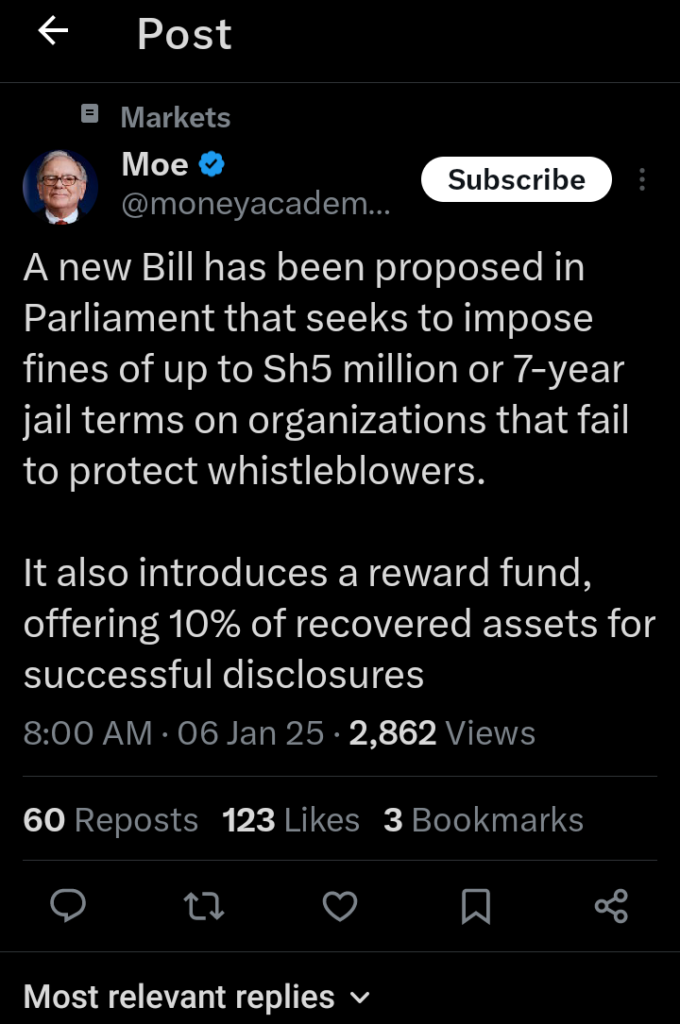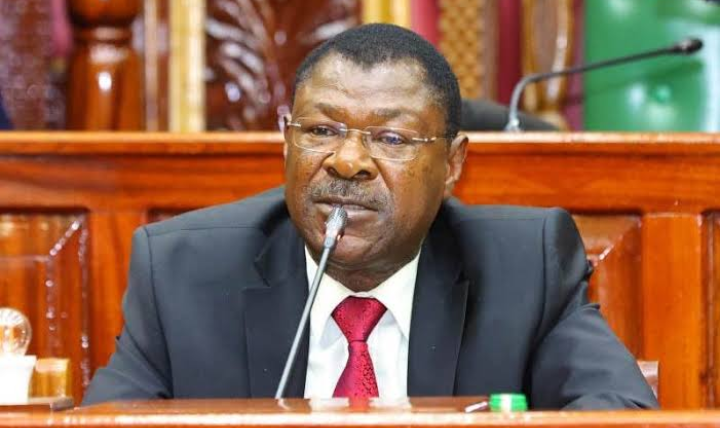Kenya is taking major steps to protect individuals who expose wrongdoing within organizations.
A new Bill, the Whistleblower Protection Bill 2024, has been introduced in Parliament to establish clear procedures for reporting misconduct and to safeguard whistleblowers from retaliation.
Under this proposed legislation, organizations that fail to protect whistleblowers could face fines of up to Sh5 million or prison terms of up to seven years.
These stringent penalties aim to deter entities from neglecting their duty to safeguard those who come forward with valuable information.
The Bill also introduces a reward system to encourage the reporting of misconduct.
Whistleblowers whose disclosures lead to the recovery of money or assets would be entitled to 10% of the amount recovered.
In cases involving the recovery of assets, the whistleblower would receive 10% of the asset’s value, providing a tangible incentive for individuals to report wrongdoing.
The Ethics and Anti-Corruption Commission (EACC) has emphasized the importance of this legislation in strengthening whistleblower mechanisms.
During the African Anti-Corruption Day, the EACC highlighted the need for reforms to protect whistleblowers and encouraged the National Assembly to prioritize the enactment of the Whistleblower Protection Bill.

Despite these efforts, there have been concerns about delays in passing the Bill.
The EACC has accused Parliament of hampering anti-corruption efforts by not expediting the legislation, underscoring the urgency of establishing comprehensive protections for whistleblowers.
Public participation has been sought to ensure the Bill addresses the concerns of all stakeholders.
The Attorney General’s office has invited comments on the Whistleblower Protection Bill 2024, reflecting a commitment to inclusive legislative processes and the importance of public input in shaping effective laws.
The Speaker of the National Assembly has also advocated for legislative measures to protect whistleblowers, indicating a recognition at the highest levels of government of the need for such protections.
This advocacy aligns with the broader goal of promoting transparency and accountability within both public and private sectors.
The introduction of the Whistleblower Protection Bill 2024 represents a significant move towards enhancing transparency and accountability in Kenya.
By imposing strict penalties on organizations that fail to protect whistleblowers and offering financial rewards for successful disclosures, the legislation aims to create a safer environment for individuals to report misconduct.
The active involvement of institutions like the EACC and the call for public participation underscore the collective effort required to combat corruption and unethical practices in the country.





















Add Comment